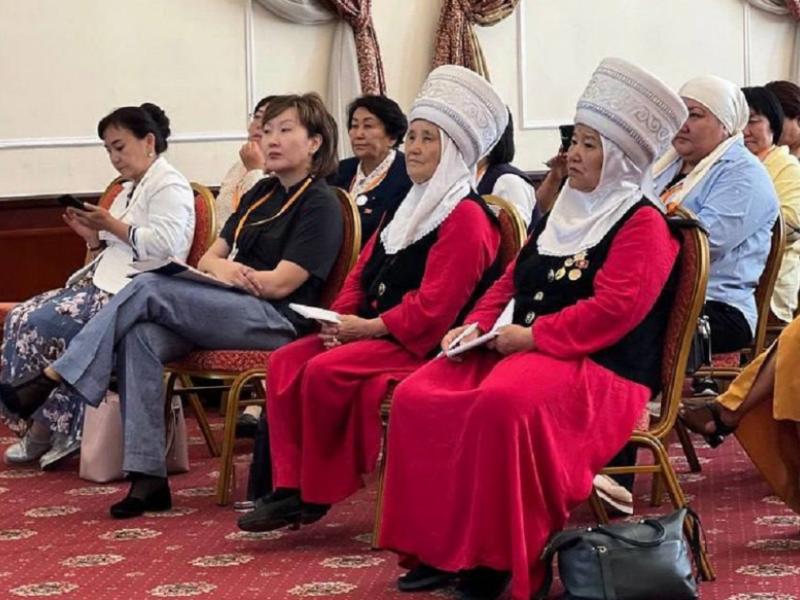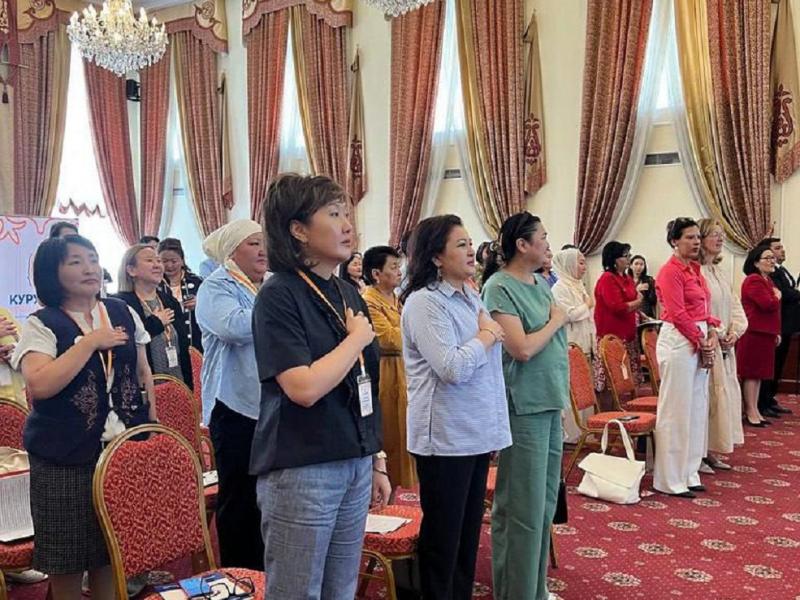Akyikatchy proposed that women's child-rearing should be counted as part of their length of service
Akyikatchy proposed that women's child-rearing should be counted as part of their work experience length of service.
At the Kurultay of women leaders in Bishkek, Akyikatchy (Ombudsman) of the Kyrgyz Republic Dzhamilia Dzhamanbaieva said that necessary measures should be taken to ensure the rights of women's children.Dzhamanbaeva stated that necessary measures have been taken to ensure women's rights in Kyrgyzstan.
Akyikatchy noted that the level of domestic violence against women continues to be high. Many efforts need to be made to combat violence and eradicate stereotypes against women and children.
The Ombudsman believes that it is necessary to revise labor legislation in KR to ensure the rights of women who are busy raising children.
"It is required to make changes to the Labor Code and allow women who are forced to stay at home to raise children, so that this time can be counted as labor time should be counted in the labor record," Dzhamanbaieva said.
"There is a lack of government crisis centers and information on prevention from all forms of violence against women and children. Law enforcement agencies need to universally inform the population, especially women, about the ways and types of protection by the state authorities," said Akyikatchy.
According to Dzhamilia Dzhamanbaeva, the following measures should be taken soon the following measures:
- to count in women's labor record the time for which they had to count in women's labor record the time they had to leave work or were engaged in child rearing;
- ensure equal access of women and men to all types of economic activities;
- сreate conditions for promoting women's employment in small and medium-sized businesses;
- develop a strategy to equalize employment opportunities for women in rural and urban areas.
Akyikatchy noted that such measures were necessary to eradicate violence against women and children.
"Statistics do not reflect the real situation, the part of women is not taken into account, who, for various reasons, have not applied to the labor employment agencies or are in search of work, and the non-working part of the economically active population is not fully accounted for.
Women who are less engaged in the labor market, in economic life, who have not received an education, become economically dependent and are most at risk of becoming victims of domestic violence," Akyikatchy concluded.
The Akyikatchy added that despite the measures taken by the State to combat violence against women and children.
"The level of domestic violence against women continues to be high. Women from different socio-economic groups, with different cultural, ethnic and religious backgrounds, education levels cultural, ethnic and religious backgrounds, education levels are victims of domestic violence.
According to the Ministry of Internal Affairs of the Kyrgyz Republic, there were many cases of domestic violence where, under pressure from the relatives of the abuser, the victim accepts reconciliation, which does not allow to achieve social justice by bringing the victim to justice.
Since public-private offences are not initiated unless the victim makes a complaint, women are afraid to approach law enforcement agencies because they doubt that the case will be brought to court.
Women are afraid to approach law enforcement agencies because they doubt that the case will be brought to a logical conclusion, so a large number of crimes go unpunished" emphasised Dzhamilia Dzhamanbaieva.


